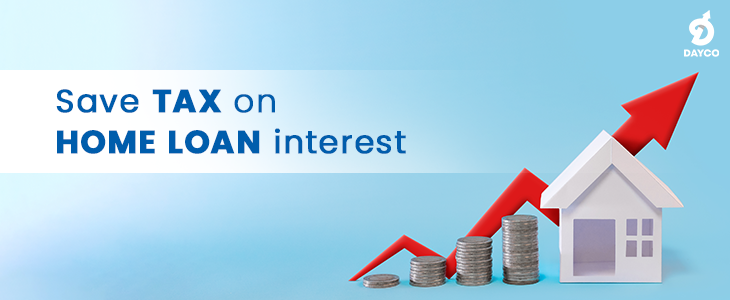Buying a home is a dream come true for many aspiring Indians. It is an achievement! Most of them do so by taking home loans. If you are one of those paying home loan EMIs, you should know that you can save a substantial amount of tax.
Home loan EMI has two components, and both are eligible for tax deduction under different sections of the Income Tax Act. Let’s see the exemptions available for principal repayment, stamp duty, and registration charges before we move into benefits available for repayment of interest.
Section 80C of the Income Tax covers exemptions related to repayment of the principal amount in a home loan and other charges like stamp duty and registration. A taxpayer can avail of up to 1.5 lakhs in a financial year for these expenses. These deductions are available on a payment basis (can be claimed only in the year in which these expenses are incurred), and the house property should not be sold within five years of possession. If done so, the deduction claimed earlier will be added back to the total income in the year of sale.
Exemptions related to interest on home loan
These deductions are covered under Section 24 of the Income Tax Act. If you have taken a loan on or after 1st Apr 1999 for the Purchase or Construction of a self-occupied Property, you can claim an interest payment exemption of up to two lakhs (unabsorbed losses cannot be carried forward) in a financial year. The acquisition or construction of the property should be completed within five years from the year in which the loan was taken.
If the loan was taken before 1st Apr 1999 or for repair, renewal, or reconstruction or was not completed/acquired within the stipulated time frame mentioned above (five years), the maximum tax deduction allowed u/s 24 is 30K in a financial year.
However, in the case of a let-out property (for purchase, construction, repair, renewal or reconstruction), there is no maximum limit for these deductions, and the taxpayer can take a deduction of the whole interest amount. But the loss that will be adjusted against other income heads, such as salary, etc., cannot exceed 2 lakh in a financial year. The unabsorbed loss under the head ‘Income from house property can be carried forward for 8 successive years and is to be adjusted against the income from house property only.
The deductions for interest are also available if you buy an under-construction property. The interest on your housing loan can be claimed as a deduction after the construction is completed in five equal annual installments, commencing from the year in which the house property is acquired or constructed.
Deduction of interest u/s 80EEA:
You can also claim an additional interest deduction of up to 1.5 lakhs u/s 80EEA, provided the following conditions are satisfied:
- The loan must have been sanctioned either in the financial year 2020 or 2021 (between 1st April 2019 to 31st March 2021)
- The stamp value of the property does not exceed 45 lakhs
- On the date of sanction of the loan, the individual does not own any other residential house property.
- The individual taxpayer should not be eligible to claim a deduction under the existing section 80EE.
Deductions of interest u/s 80EE:
This section is also available for taxpayers for additional interest deduction (up to 50K), provided the following conditions are satisfied:
- The loan must have been sanctioned in the financial year 2017 (Between 1st April 2016 to 31st March 2017)
- The value of residential house property does not exceed 50 lakhs
- The amount of the loan does not exceed 35 lakhs
- On the date of sanction of the loan, the individual does not own any other residential house property.
If you have a question, share it in the comments below or DM us or call us – +91 9051052222. We’ll be happy to answer it.
– Nischay Avichal
















